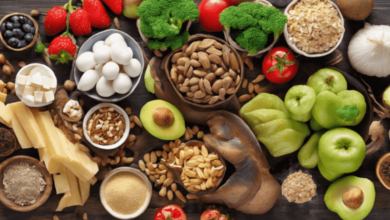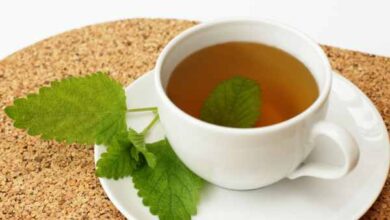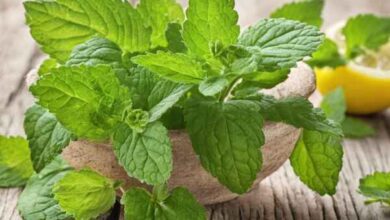10 Foods That May Cause Depression
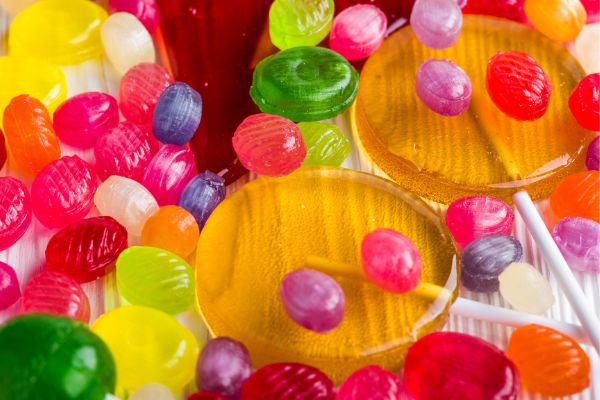
Depression is a sign that many of us feel every once in awhile. For many people, it can be troubling enough to negatively impact their work, relationships, and overall quality of life.
Although depression is regarded as a diagnosis on its own, a growing number of doctors are getting wise to the fact that depression is often a symptom or side effect of something else associated with the mind-body connection. Treatment can include things like therapy, medication, exercise, and diet.
Research indicates that food choices can either exacerbate or minimize feelings of depression. Although not a cure-all in any way, we have compiled a list of foods that are best avoided when you are feeling down.
Paying attention to your diet plan in this way can decrease the frequency as well as duration of depressive episodes. In addition, the simple act of selecting food that lifts rather than crushes your psyche is a kind of self-care that can begin to turn the tide
10. High-Sodium Foods
Excessive sodium can also result in a depressed mood and body fatigue, which is a double whammy for the neurological system. It can possibly cause bloating and contribute to weight gain, both things that could make us feel uncomfortable in our bodies.
Fast food as well as junk food is also a major contributor to many health issues, and salt is among the primary culprits. An excessive amount of salt can also result in depression which may end up in physical illness as the immune system is already depressed.
Ironically, not sufficient salt also can lead to depression, but the regular person already gets way a lot of.
9. Fast Food
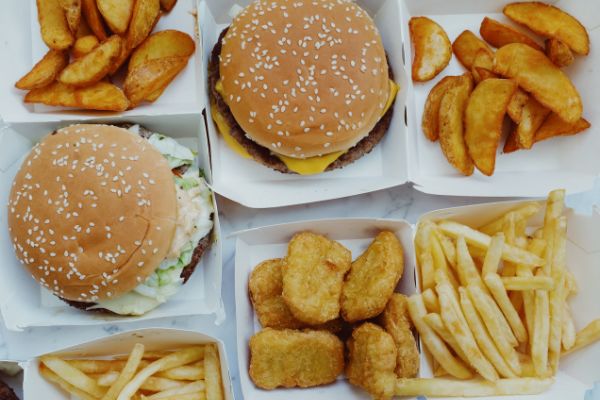
When you are feeling depressed, you most likely feel as if climbing a mountain if you try to prepare a healthy meal at home. Fast food is a handy alternative to simply get something in your body. And, like alcohol and sugar, it feels very good initially.
Like a lot of other foods, fast food can also cause depression and binge eating. Studies have revealed that people who often eat fast food are at risk for depression, up to 51 percent, based on a 2012 research published in the journal Public Health Nutrition.
Try to stay away from fast food, and instead snack on easy but healthy options when you’re feeling low, like nuts, dried fruit, avocado on whole wheat toast, or perhaps oatmeal.
8. Alcohol

Alcohol is able to help people forget their problems, and it can be a short term solution. Unthinking behavior when people are intoxicated causes many more problems, and those are all still there each morning.
Alcohol acts like a depressant, which suppresses the central nervous system, which is responsible for the way we process our feelings. So you are very likely to feel much more depressed the day time after drinking, which feeds into a vicious cycle of causing you to feel lower and lower every day, and drinking more and more every night, or you may fall into the trap of wanting alcoholic drinks all day long to “feel normal.” Attempt to stop drinking at the same time to increase your bottom line level of depression, and also select much better treatment options in the future.
7. Artificial Sweeteners
Unfortunately, artificial sweeteners are no much better for your mood that sugar. Aspartame especially has been associated with a decrease in the feel-good neurotransmitter serotonin.
When serotonin in blocked in the human brain, it leads to depression, but additionally headaches and also insomnia, which might impact your mental stability.No artificial sugar substitute is with no risk.
But since all of us need a bit of sweetness in our lives, we recommend Stevia or honey for boosting the morning beverage of yours without resulting in a crash later.
6. Sugar
Sugar is similar to the ultimate devil in disguise. It feels so wonderful to consume sugar in the moment, but before you know it, you’ve plummeted into an emotional and physical pit of exhaustion.
In reality, researchers have long wondered exactly why depression, diabetes, and dementia occur generally together, together with the latest scientific studies point to the fact that when blood glucose is elevated, your brain really works at a suboptimal level!
Too much sugar will cause a big dip of production of proteins which encourages development of synapses and neurons, and depression is actually among several possible bad results in that scenario.
5. Caffeine

While experts don’t believe caffeine causes depression, it can make insomnia even worse for all those who actually are affected.
Undisturbed sleep is essential to a healthy mind, and in case you’re up all night or restless, you may go into the next day lacking the resources you need to deal with things. If you are experiencing a bout of depression, you may want to try a strict sleeping routine and avoid drinking excessive amounts of caffeine.
At the very least, avoid all caffeinated drinks after lunch, and do n’t ever touch an energy drink. Some of those things possess as much caffeine as 14 cans of soda! Note: If you are already drinking a great deal of caffeine, you might want to stop drinking it in order to avoid the withdrawal symptoms, such as fatigue, headache, and irritability.
4. Dairy

A variety of studies have pointed to the protein casein, found in dairy foods, as a significant cause for inflammation along with a driver of depression.
It does not impact everybody, but might be a possible technique to look into if you are truly faced with very low mood.Try getting rid of dairy for 30 days and evaluate how you feel
Just be sure to get sufficient calcium from other foods, like oranges, broccoli, kale, apricots, and spinach.
3. GMOs
Genetically-modified organisms (GMOs) are a staple in our diet plans because more and more commercial growers are adjusting nature’s design to create food that seems and travels better. But is it better for us? The truth is, we don’t know.
On the other hand, GMOs are heavily coated in pesticides that are toxic to human cells. Among the most common and contentious pesticide sprays is Roundup, which interferes with the body’s ability to create essential amino acids, absorb critical minerals, and detoxify the liver.
Since the mind-body link is very strong, we recommend eating organic as much as you can if you suffer from depression.
2. Hydrogenated Oil
Depression is essentially a brain disease that manifests in many ways physical and emotional. It has a negative effect on the brain and body when eating foods that are cooked in hydrogenated oils.
Beyond attacking heart health, the trans fats present in hydrogenated oil can clog arteries and also restrict blood flow to the brain itself, resulting in depression. The circulatory system is a crucial portion of the mind-body link; hinder that and you’re more likely to suffer from low mood and a weak body.
1. Soda and fruit juice
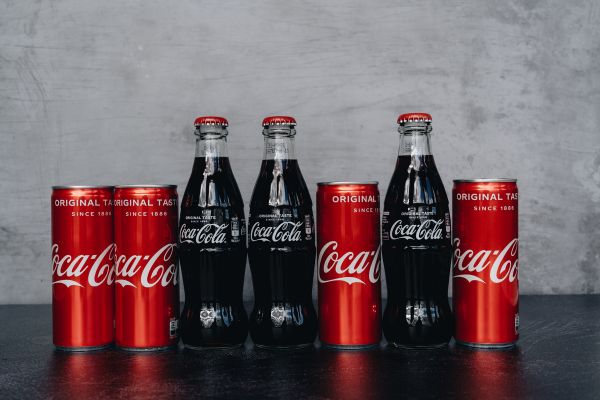
Each of these beverages are positively packed with sugars, which we all know results in all sorts of inflammation in addition to a multitude of health problems.
Soda is not just loaded with artificial colorings and preservatives, it also has no redeeming health benefit. Some fruit juice may be okay, delivering vitamins plus the sugar, but it misses all of the good fiber that could make you feel full preventing overeating.
We recommend a low sugar diet program if you are experiencing depression, but in case you do want your daily allowance from juice, make sure it is in your home so you are aware there are no added sugars lurking there.
Making healthy and balanced choices for you is a tall order in the face of depression. You may feel like you don’t really matter, so why bother?
But if you have an ebb and flow in your depression, you are able to use the good times to prepare your kitchen in ways that supports healthy eating when you are too mentally exhausted to care.
You need to absolutely see your physician for guidance about depression that impacts your self esteem with your important relationships. Improved diet may perfectly be a suggested factor in your overall treatment plan. We hope you feel better soon.
